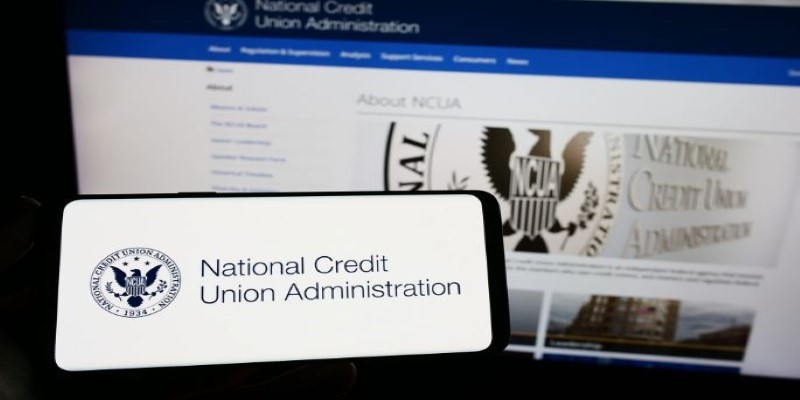Certificates of Deposit (CDs) and FDIC Insurance: A Complete Guide
Certificates of Deposit (CDs) are often seen as a low-risk way to grow savings, offering predictable returns with fixed interest rates. However, a common concern is whether these accounts are protected if a bank fails. The short answer is yes—CDs are insured by the Federal Deposit Insurance Corporation (FDIC), just like regular savings and checking accounts.
However, the details of this protection, including limits, exceptions, and what happens if a bank collapses, are crucial to understand. Knowing the full scope of FDIC coverage can help you make smarter financial decisions and avoid potential risks.
How FDIC Insurance Protects CDs?
FDIC insurance was created in 1933 to ensure that bank customers don't lose their deposits if a bank fails. This protection extends to Certificates of Deposit as long as they are deposited at an FDIC-insured bank. If the bank where your CD is deposited fails, the FDIC compensates depositors up to the insured amount.
As of the current time, FDIC insurance protects up to $250,000 per depositor, per bank, and the ownership category. What this implies is that if you've got more than one CD with the same bank, their combined balance should not exceed $250,000 if you're hoping for maximum protection. If you've got CDs from several banks, each one is individually insured for up to the same amount.
Ownership categories are also important in coverage. If you own a CD account and a joint CD account at the same institution, each category is covered separately. So, for instance, you might have a single CD covered up to $250,000 and a joint CD covered up to an additional $250,000, essentially doubling your coverage at one institution.
What Happens When a Bank Fails?
Bank failures are rare, but they do happen. When an FDIC-insured bank collapses, the FDIC follows a structured process to ensure that depositors receive their money. Typically, there are two ways this happens.

First, the FDIC may arrange for another bank to take over the failing institution’s assets, including its deposits. In this case, customers' CDs are transferred to the new bank with the same terms, and there is no disruption to interest earnings or account access.
If no bank takes over, the FDIC will pay depositors directly, refunding the principal and any earned interest up to the insured limit. This payment is usually made within a few days of the bank’s closure, ensuring depositors regain access to their funds quickly.
It is important to note that the FDIC only insures deposits. If you have a CD at a credit union instead of a bank, it would be protected under the National Credit Union Administration (NCUA), which operates similarly but is a separate entity.
Are There CDs That Are Not FDIC Insured?
While most CDs are covered by FDIC insurance, there are some exceptions. Understanding these exceptions is essential for depositors who want full protection.
Brokered CDs
Brokered CDs are CDs purchased through brokerage firms rather than directly from a bank. While FDIC-insured banks issue some brokered CDs, the way they are held can affect whether they qualify for FDIC insurance. If a brokerage firm fails to register a brokered CD correctly under the depositor's name, it may not be insured. Investors should always verify whether a brokered CD is properly registered to receive FDIC protection.
Foreign Bank CDs
The FDIC does not cover CDs issued by foreign banks. Some international banks offer CDs with higher interest rates to attract U.S. investors, but these deposits are not protected if the bank fails. Instead, they may be subject to foreign banking regulations, which provide little to no security for American investors.
Investment-Linked CDs
Some financial institutions offer market-linked CDs, which tie their returns to stock market performance. While these CDs promise higher returns, they often lack FDIC insurance because they are considered investment products rather than traditional deposits. If a bank collapses, depositors with market-linked CDs may not receive their principal back.
Credit Union CDs

While similar in function to bank CDs, credit union CDs (often called share certificates) are not insured by the FDIC. Instead, they are covered by the National Credit Union Administration (NCUA), which provides similar protection but is a separate entity.
Maximizing FDIC Protection for Your CDs
For those who have large deposits and want to ensure full FDIC protection, there are ways to structure your accounts to stay within coverage limits.
One option is to spread your deposits across multiple FDIC-insured banks. Since FDIC coverage applies per bank, having multiple CD accounts at different banks ensures that each deposit is separately insured.
Another approach is to use different ownership categories. For example, an individual CD, a joint CD, and a trust CD at the same bank each receive separate coverage up to the FDIC limit. This allows depositors to legally maximize their insured amounts without splitting funds across different institutions.
Some banks also participate in CDARS (Certificate of Deposit Account Registry Service), a network that automatically distributes large deposits across multiple FDIC-insured banks while keeping everything under one account. This allows depositors to maintain full FDIC coverage without manually opening accounts at multiple institutions.
Conclusion
Certificates of Deposit (CDs) provide a safe and predictable way to grow savings, and FDIC insurance ensures that deposits are protected in case of a bank failure. With coverage of up to $250,000 per depositor, per bank, and per ownership category, most CD holders have strong financial security. However, understanding exceptions—such as brokered CDs, foreign bank CDs, and investment-linked CDs—is crucial. By structuring deposits wisely across banks and ownership types, investors can maximize coverage. FDIC insurance offers peace of mind, making CDs a reliable option for those who prioritize financial stability and protection against unforeseen banking failures.












